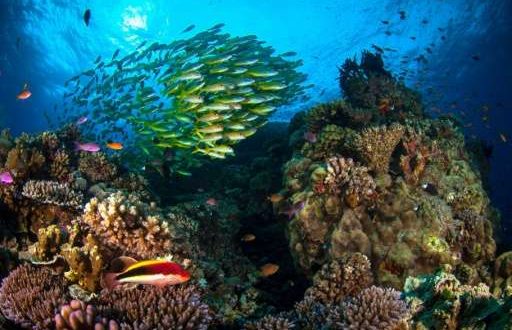All mentions of Australia were deleted from a major United Nations report on climate change after the Australian government protested that the report could put tourists off.
The report contained chapters on Australia’s deteriorating Great Barrier Reef – seriously damaged by warming seas — and environmental issues concerning Tasmania’s fabled old-growth forests and the Northern Territory’s Kakadu wilderness areas which attracts thousands of international visitors.
The United Nations released a key report titled “World Heritage and Tourism in a Changing Climate,” which examined the impact of global warming on vulnerable natural and cultural World Heritage Sites. Surprisingly, and to the bafflement of many, the 100-page report does not mention the Great Barrier Reef even once.
According to the Guardian, all references to the Great Barrier Reef were removed from the document at the behest of the Australian government, which expressed fears that the information and unwanted publicity may hurt tourism.
“Recent experience in Australia had shown that negative commentary about the status of world heritage properties impacted on tourism,” a spokesperson for Australia’s environment department told the Guardian.
However, the glaring omission has not gone down well with scientists and climate activists, especially as it comes at a time when the reef is witnessing the worst coral bleaching event in its history.
I’ve spent a lot of my career working internationally and it’s very rare that I would see something like this happening,” Will Steffen — the head of Australia’s climate council and one of the scientific reviewers of the sections about the reef that were removed, told the Guardian. “Perhaps in the old Soviet Union you would see this sort of thing happening, where governments would quash information because they didn’t like it. But not in Western democracies. I haven’t seen it happen before.”
The Great Barrier Reef, which stretches over 1,400 miles along Australia’s northeast coast, consists of nearly 3,000 individual reefs. The region serves as a habitat for nearly 100 species of jellyfish, 3,000 varieties of mollusks, 1,600 types of fish, over 130 varieties of sharks and rays, and more than 30 species of whales and dolphins.
In June 2015, the reef narrowly avoided being listed as “in danger” by the Unesco, after the Australian government announced a rescue plan to curb the damage.
However, after recent surveys indicated that up to 93 percent of the reef was suffering from some level of bleaching — which occurs when coral reefs are put under extreme stress due to a rise in ocean temperatures, acidity, or both — many have begun raising doubts over the efficacy of Australia’s efforts to save the reef.
Agencies/Canadajournal
 Canada Journal – News of the World Articles and videos to bring you the biggest Canadian news stories from across the country every day
Canada Journal – News of the World Articles and videos to bring you the biggest Canadian news stories from across the country every day



